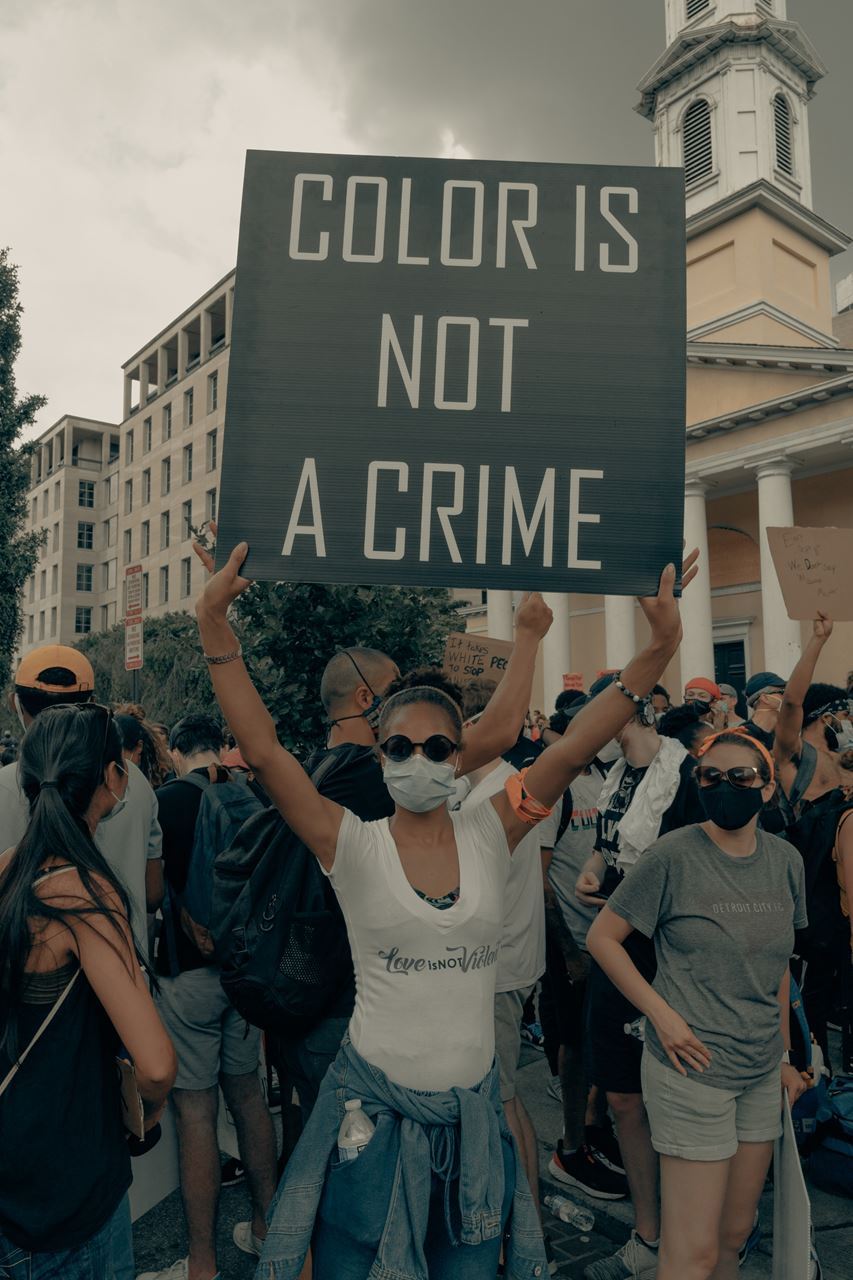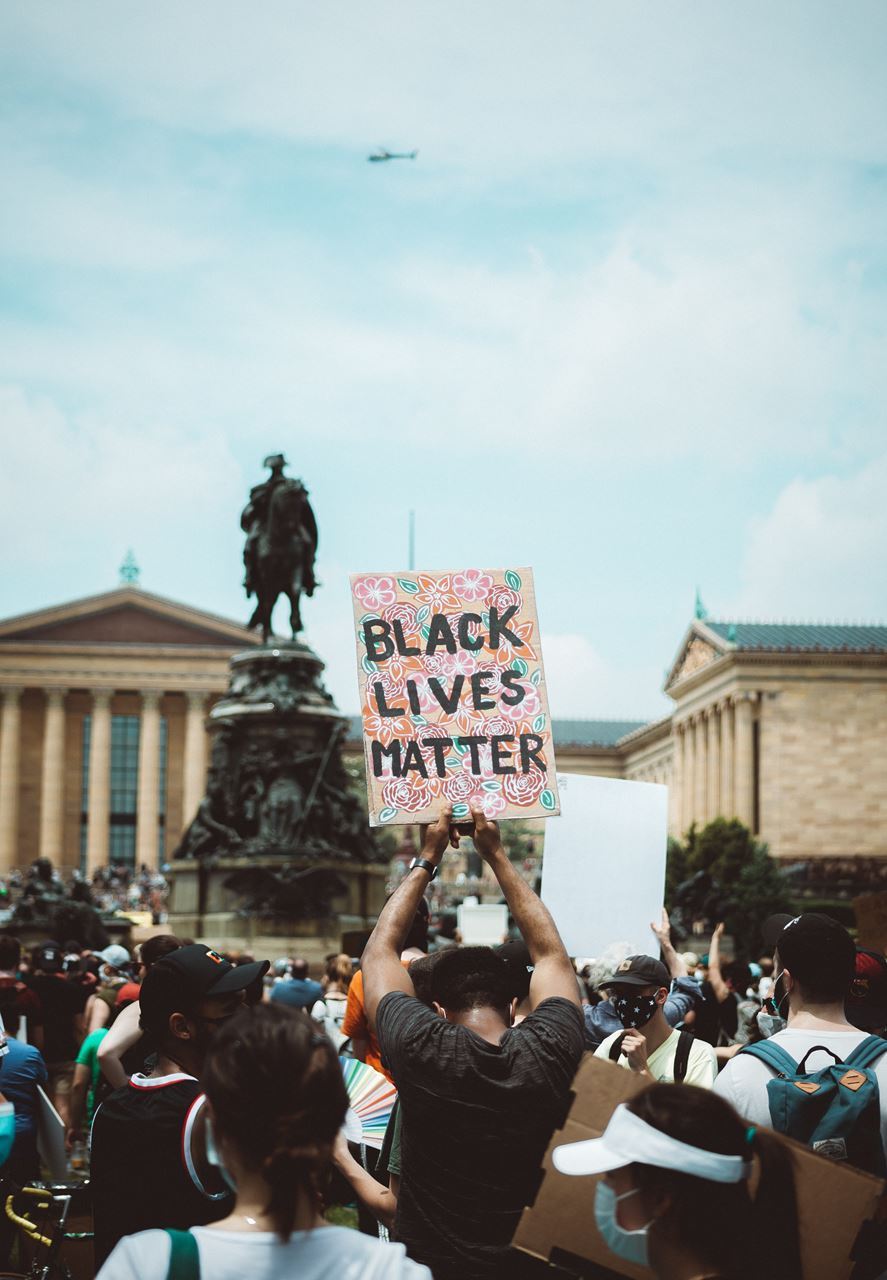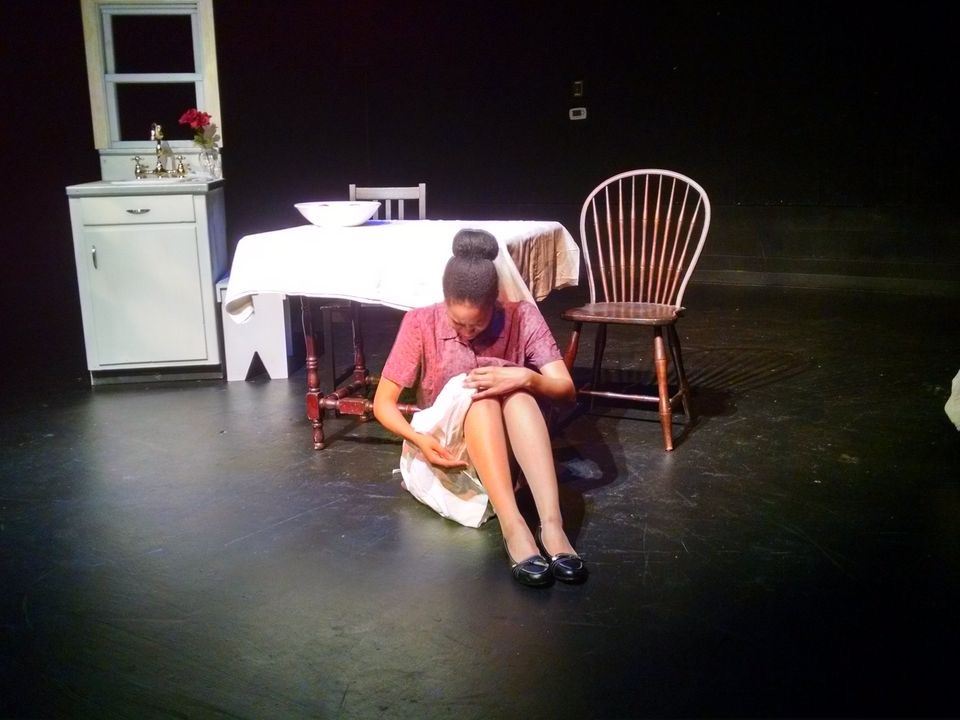Vanessa Adams-Harris in Who Will Sing for Lena?
Janice: And yes, I had written Who Will Sing for Lena? around that time and since then, it has done fairly well in various places. But the film was a totally different project; it was, of course, related to Lena Mae Baker, but not at all related to my play. Believe it or not, the two are very different perspectives, even of Ms Baker. But as I have always said, Lena helped me to write my play and I told it the way she told it to me.
Carolyn: I just want to tag onto that last comment. YES! Working with historical figures, and especially those in what I call “unquiet graves,” I have had that experience of a presence outside of myself standing by my side and nudging me to tell her story. Practicing theatre as a sacred art… full of miracles. So, I just want to say that this recent play of yours, The Talk, is absolutely brilliant, and I would like to see every community in this country mount a production of it. It’s packed with so much… history, politics… but the characters are believable, the dialogue is spot-on, and I had chills over and over reading it… Beautiful craftsmanship, deep humanity… just an amazing piece of theatre… but also a tool, a social justice project, a powerful, powerful way to bring communities together. I was so deeply moved by it.
Janice: Wow, coming from you as a brilliantly successful playwright yourself, that is quite an endorsement. I am glad it affected you because, truth be told, it affected me even as I wrote it. But I’m sure you know that experience—of being carried away by the work as though you are channelling it. That’s a bit how it was for me.
Carolyn: So… “the Talk”… First off, before we get into talking about the play specifically, can you tell us to what “the talk” refers?
Janice: I always have trouble with titles so I just throw a tentative title at it with hopes that the real title will emerge at some point. But as I was conceptualizing the play and characters and got into writing, I realized The Talk was THE title for this play because in the play “the talks” are manifold. By now, most everyone knows that Black parents are “forced” to have a conversation with their adolescents about the “dangers” of the streets, especially those of encountering police officers who ostensibly are there to protect the citizenry. But Black citizens, especially Black males, have not really found this protection; in fact, it has been at the hands of officers that a hell of a lot of brothers have been killed—unarmed Black men, I might add. So, in the play The Talk is an obvious allusion to the conversation that the Black father has with his Black son on how to be safe when “driving, walking, sleeping, picnicking, etc. etc. while Black.” Specifically, Quincy Sr. has the talk with his son, Quincy Jr, who, not surprisingly, has his own ideas about staying safe. Then there is the talk that unfolds regarding both the mother and the father. As in so many Black families, the hardships and difficulties are often hidden from the youth with a kind of attitude that if we don’t talk about it, we can overcome it or even sometimes, if we don’t talk about it, it didn’t happen. So, we have a detailed talk about Lillian’s upbringing in an orphanage—the Carrie Pitts Steele Orphanage, an historical orphanage in Atlanta. And finally, the climactic talk is the one that reveals emotionally charged experiences that actually caused the family to migrate from Mississippi to Ohio—a route not uncommon for the underground railroad.

https://unsplash.com/photos/zIHsQqJ71IE
Carolyn: In The Talk, you have four generations of an African American family, on a Saturday morning… and there is a lot of conflict, because the two youngest members of the family, a brother and sister, want to attend a Black Lives Matter march and their parents don’t want them to go. Can you talk a little bit about that conflict? They even make their son take off his Black Lives Matter tee shirt.
Janice: This is a highly successful Black middle-class family and in their eyes, as in the eyes of many “highly successful Black middle-class families,” their success has resulted from them pulling themselves “up by their bootstraps.” They would likely never admit they went to university on an Affirmative Action program (as did I), for example. Additionally, they desire to separate themselves from the more “common” element of Black folks—separate themselves in every way they can. In fact, they tend to look down on the experiences of Black folks who, in their middle-class eyes, are financial, intellectual, educational, etc. failures in life. These parents have tried to shelter their children from these “failures” and serve as models for the successful route of Black people from poverty to wealth; from the ghetto to the suburbs. However, their middle-class Black children are highly influenced by the world outside of their “burbs.” Quincy Jr. is in college with youngsters from all walks of life; Miranda is so attached to her tablet and research on it that there is nothing that gets by her. The children and their parents are in totally different “realities”—and at this point, never the twain shall meet.
Carolyn: But the whole power dynamic shifts when the grandparents and great grandmother show up for the brunch. We see such a panoply of African American history in this family. It’s just wonderful. Four generations… up from poverty to affluence… but the lynching remains a constant.
Janice: With so many killings of Black males and the eruption of Black Lives Matter movement, I knew I wanted to write a play about this era, but I saw so clearly its connection to a previous era, and I wanted to make the connections. I wanted these two eras to guide the play, but not be the play. So, I thought hard and long about a way that wouldn’t be so hard-hitting, so didactic and came up with this wonderful multi-generational family. I don’t want to talk too much about THE lynching since it is the turning point of the play, but “lynching” per se is a constant trope in the play. Quincy Sr does not share with his children that a noose was put on his desk after he received a promotion at work; that he has definitely encountered racism in his rise to affluence. Lynching is an obvious parallel to what is occurring between all the young men and women who have been shot down by police officers across the country. In fact, the introduction of the play is a tight focus on all of these “lynchings” that have occurred from the killing of Trayvon Martin to the killing of Philando Castille and Alton Sterling on eve of the Black Life Matters march in Atlanta at the play’s rising (2016). And, of course, the final “lynching” provides a history of how this violent and deadly tool of racism and control has affected the lives of Black folks on both a micro and macro level.

https://unsplash.com/photos/E77SjOPCE5Y
Read the entire interview at: https://carolyngage.weebly.com/blog/interview-with-dr-janice-liddell-about-the-talk

Jessica Washington is the most recent of several excellent actors who have played this role. Jessica has already won several awards for her Lena Baker presentation and she will likely astound you in this special 1 hour-long festival performance. You don't want to miss it, September 30, 2020--the first day!!.
Janice Liddell’s play Who Will Sing for Lena is being performed at the Atlanta Black Theatre Festival (ABTF) online.
An incredible line-up that includes...
WHO WILL SING FOR LENA? by Janice Liddell
A true story, one Black woman's struggle in rural Georgia.
Three Outstanding Production awards, Three Outstanding Actress awards (Jessica Washington) - AACT's State, Regional, and National Festivals.
Get your FREE Black Theatre at Home Show Guide @ Atlantabtf.org/contact
Enjoy FOUR DAYS OF BLACK PLAYS: Wed. 9/30 - Sat. 10/3

Carolyn Gage is a lesbian feminist playwright, performer, director, and activist. The author of nine books on lesbian theatre and sixty-five plays, musicals, and one-woman shows, she specializes in non-traditional roles for women, especially those reclaiming famous lesbians whose stories have been distorted or erased from history.
![]() at the top of the post
at the top of the post![]() at the top of the post
at the top of the post